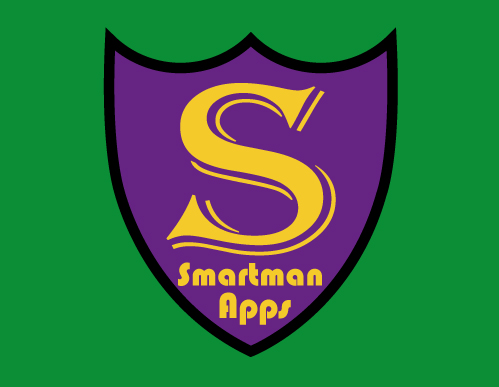Hidden benefit: never having a cookie acceptance popover, because you don’t have cookies.
Also:
- Simple sites allow visitors to stay safe from browser exploits by keeping scripts disabled.
- Simple sites pose very little threat of fingerprinting or other invasive tracking techniques.
- Simple sites can look beautiful, with a bit of well-crafted CSS.
I once went to a professional to get a website done (as my ability (read: patience) to code websites had proved inadequate) and they constantly tried to upsell me on just the most stupid bullshit. When I pointed out how a lot of moving parts just means more things that could possibly break they blew me off and acted like it was a completely unreasonable concern. Needless to say ended up using a website builder instead and despite a few small glitches it works pretty well with JS completely disabled.
EDIT: I was particularly concerned with how heavily they were leaning on JS, to the point it flat out wouldn’t load at all for some users. Having JS flair is perfectly fine on the side but when you can’t even get fucking text to load without it, that’s a problem.
I.d rather take any website than being continuously forced to download apps, or being told to go to Facebook for some business’s information.
There’s 2 things a website should respect - simple do it more often -, and not doing these will earn you my wrath:
- you should be able to at least zoom/shrink text. Some websites have things so locked down, I can never read their teeny tiny text. Fuck you ESPN. Why would you let desktop zoom, and stop it on mobile where my screen is smaller and I most need it? (I’ll leave alone the original intent of the web of separating presentation from content for another day).
- Browser Back button should take you back to the previius ‘page’. I’m terrified to use it because you’re really showing multiple ‘pages’ on 1 real page, so who knows where I’ll end up.
I think the reason experienced devs tend to have minimalist websites that look like they are from the 90s, is because software devs aren’t UX experts.
At a senior level at large companies, someone else designs the look and figmas to make the site be pretty. I don’t do that shit.
I can do some basic stuff as a front end dev, but react has nothing to do with css animations and all the stuff you typically associate with a “pretty” website.
Reactive frameworks are just handy for updating the dom on a mutatable website (ie forms, web socket stuff, data in out, pulling data from a db)
Blogs tend to be statically generated so there should be zero reason to use reactive frameworks anyways, unless you add something dynamic like perhaps a comment box folks can login to and leave comments/likes/shares etc. Loading those comments will prolly want a framework.
Aside from that, it’s mostly css to do fancy stuff.
Pretty sites are cool and all, but in my experience super simple things often just don’t work. I’m not patient anymore when it comes to stuff like that, so I’ll close the tab real quick and find the information elsewhere or move on to the next thing.
Pretty sites aren’t aimed at us though.
For the average consumer grabbing their attention is really important and first impressions mean a lot.
If they go onto a site that looks “basic” it’ll give a bad impression of the business.
I know I’m not part of the target audience for pretty sites, but the average user gets frustrated with poor design choices and outright broken websites as well.
Just as one recent and therefore present example, I was on a pretty site the other day and nothing happened when I clicked on “About Us”. The next thing I did was close the tab. As you say, first impressions mean a lot.
I hear complaints about these kind of things at work constantly as well. As an internal product owner of sorts users think I and the devs make poor design choices on our own, but all we can do is manage the best we can with the UX garbage Microsoft comes up with.
I’ve been saying this for years. My site only has a few lines of javascript. the rest is pure html and css, and it’s very simple. https://tylerthrailkill.com
Your theme toggle is confusing, it shows the sun when the dark mode is enabled and vice versa
Hey - the poster isn’t actually the author. That would be me! Thanks for the feedback though. I normally just use Dark Reader for switching theme.
There was a thread elsewhere asking whether a toggle should show current state or the state desired. There was enough disagreement that it quickly became apparent that, whatever else the toggle does, there should be something external to the toggle showing the possible states, indicating which way to move the toggle regardless of toggle appearance.
that post is about toggle buttons, not switches. e.g. a play pause button, when pressed, does it show play, or does it show pause?
Oops! I guess I wasn’t paying close enough attention.
still, people are clearly confused by the button. I’m just gonna make it an animation and prefers-color-scheme since that’s so widely supported now.
The disagreement was actually all over whether the question was about a switch or a button, and so some people were answering as though it was a switch, and some people were answering as though it was a button - switches and buttons do indeed have opposite approaches usually (a switch usually shows the current state - such as “on” - but a button shows what action will be triggered by pressing it, such as “play”).
Oops! I guess I wasn’t paying close enough attention.
That’s ok - a lot of people weren’t.
It did nothing when clicking it the first time and only changed the second time I clicked it
I’ve wondered what this problem was for years but never cared to figure it out, because it always resolved after the first button press (just refresh the page and it all works properly). turns out it is something wrong with my use of local storage to save your theme state. if you don’t have the key in local storage then it does what you mentioned. I just need to switch this to prefers-color-scheme anyway.
Obligatory:
what the fuck else do you want?
Lol, maybe a max-width on body at least, so I don’t lose my line when reading long lines.
It’s said to have narrow lines helps readeability for a reason.Although, I agree, you don’t need much to make a website that is functional.








